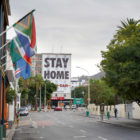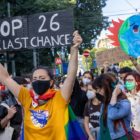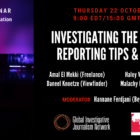News & Analysis
Saving Journalism, Part Two: In Africa, A Dearth of Support Amid the Pandemic
|
In this second excerpt from a report on the state of sustainability of journalism, the author discusses the African press, how the coronavirus pandemic impacted reporting in the region, and the proposals to ensure the media not only survives, but thrives, in the future.








